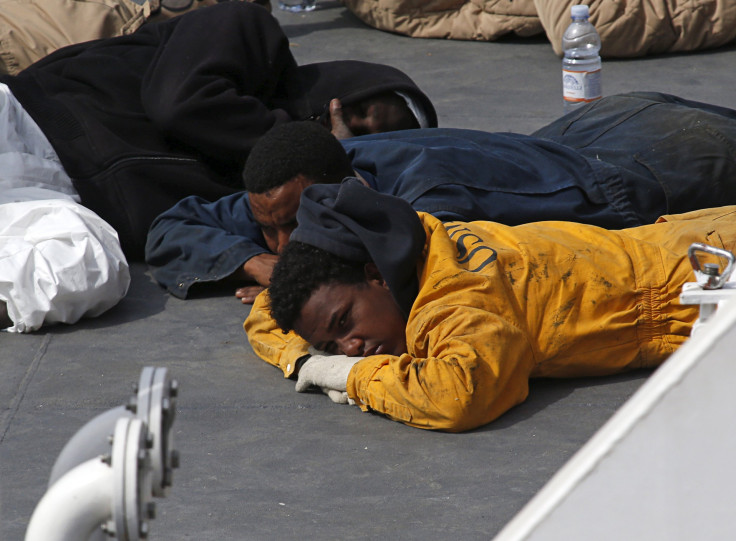Europe Migrant Crisis: EU Ministers Set To Hold Crisis Talks

Leaders from the European Union are set to meet on Monday to discuss solutions to the ongoing migrant crisis, after thousands of people have died while crossing the Mediterranean Sea from the North African coast. The meeting, which will be held in Luxembourg, will likely be dominated by the latest tragedy where a boat capsized off the Libyan coast killing up to 950 migrants on Sunday.
On Monday, the Greek coast guard reported that another vessel carrying dozens of migrants ran aground, killing at least three people, according to the BBC. With the fresh casualties, an estimated 1,500 people are thought to have died while migrating in 2015. In comparison, 2014 saw a record total of 3,000 deaths through the year. EU foreign policy chief Federica Mogherini stressed the need to address the crisis ahead of the meeting, adding that there was “no easy solution.”
"We have a political and moral duty to exercise our role. The Mediterranean is our sea and we have to act together as Europeans. It is also [in] our interest, [in that] of our credibility; the European Union was built and is built around the protection of human rights, human dignity and the life of human people - we need to be consistent in that," she said, according to the BBC.
Also ahead of the meeting, U.K. foreign secretary Philip Hammond stressed the need to target human traffickers in addressing the crisis, claiming that the number of migrants would only continue rising otherwise.
The European Union is also considering a plan to send warships to the Libyan coast to combat rampant oil and arms smuggling, but is concerned that it could encourage more migrants to take to the sea in hopes of being rescued and taken to Europe, Reuters reported Monday. A document obtained by Reuters argued that efforts to save more migrants from drowning during the perilous sea passage to Europe could result in human traffickers dispatching more people in unsafe boats, and warns of a “pull-factor risk,” causing more migrations.
The naval mission is one of several options the EU is reportedly considering to stop the crisis involving African and Middle Eastern migrants seeking refuge in Europe, which has resulted in criticisms of the regional body’s lack of response. Another option reportedly suggested in the document would deploy EU soldiers to secure oil facilities in Libya, and allow international firms to resume operations that were stopped because of the ongoing chaos in the country.
The move would also prevent Libya’s warring factions from obtaining oil revenues that they could then use to purchase more weapons. A U.N. sanctions monitor had earlier warned that an international arms embargo against Libya is “almost nonexistent,” and said the ineffective embargo had allowed terrorist and militant groups across the region to grow more powerful.
Libya’s oil production has reportedly fallen to half of what it was before 2011, when former leader Muammar Gaddafi was overthrown and killed by a NATO-backed rebellion, Reuters reported. The country has since been riven between rival governments, with the internationally recognized government based out of the city of Tobruk and another self-declared government that seized the capital of Tripoli in August.
In December, the fighting reached Libya’s “oil crescent,” an eastern region home to Libya’s biggest export terminals, forcing their closure. The document obtained by Reuters suggested that an EU security operation would focus on securing Tripoli and the oil crescent.
© Copyright IBTimes 2025. All rights reserved.





















